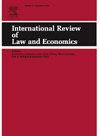And the law relaxed the rules – A quasi-experimental study of fatal police shootings in Europe
IF 1
3区 社会学
Q3 ECONOMICS
引用次数: 0
Abstract
Can the behavior of civil servants with a large autonomy, the police, be regulated by law? In the case of the use of deadly force, the subject remains understudied in Europe. A 2017 law in France relaxed restrictions and allowed for the first time the national police to use weapons beyond self-defense. This quasi-experimental study examines the impact that this regulatory change, used as an exogenous shock, has had on the number of deaths of occupants of vehicles. The monthly number of killings has significantly increased for the national police (experimental group), who are directly affected by the new regulation, but not other forces unaffected by the regulation such as the French gendarmerie, a military status force (control group 1), and other police forces of two neighboring states (Germany, Belgium, control group 2 and 3). The findings hold after controlling for the variations in level of violence in society, and police exposure to and death in dangerous traffic violations during the study period. When using more conservative specifications, the observed increase in lethal shootings does not reach statistical significance due to a lack of statistical power related to the rarity of police lethal shootings in the European context. We recommend that national regulations governing the use of weapons by police more clearly and unambiguously embed the notions of proportionality and absolute necessity.
法律放宽了规定——一项关于欧洲警察致命枪击事件的准实验研究
拥有较大自治权的公务员——警察的行为能否受到法律的规制?在使用致命武力的情况下,这个问题在欧洲仍未得到充分研究。法国2017年的一项法律放宽了限制,首次允许国家警察使用自卫以外的武器。这项准实验研究考察了这种作为外源性冲击的监管变化对车辆乘员死亡人数的影响。直接受新规定影响的国家警察(实验组)每月的杀人数量显著增加,但其他不受该规定影响的部队,如法国宪兵队(对照组1)和两个邻国的其他警察部队(德国、比利时、对照组2和3)则没有增加。在控制了研究期间社会暴力程度的变化,以及警察在危险交通违规中暴露和死亡的情况后,研究结果仍然成立。当使用更保守的规格时,由于缺乏与欧洲背景下警察致命枪击事件罕见相关的统计能力,观察到的致命枪击事件的增加没有达到统计显著性。我们建议,关于警察使用武器的国家条例应更明确和毫不含糊地列入相称性和绝对必要性的概念。
本文章由计算机程序翻译,如有差异,请以英文原文为准。
求助全文
约1分钟内获得全文
求助全文
来源期刊
CiteScore
2.60
自引率
18.20%
发文量
38
审稿时长
48 days
期刊介绍:
The International Review of Law and Economics provides a forum for interdisciplinary research at the interface of law and economics. IRLE is international in scope and audience and particularly welcomes both theoretical and empirical papers on comparative law and economics, globalization and legal harmonization, and the endogenous emergence of legal institutions, in addition to more traditional legal topics.

 求助内容:
求助内容: 应助结果提醒方式:
应助结果提醒方式:


